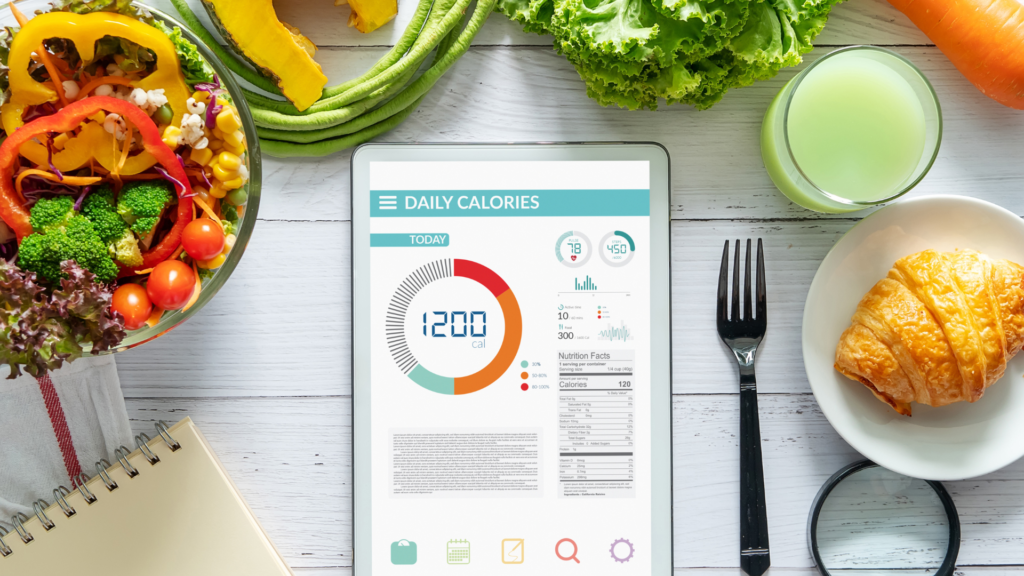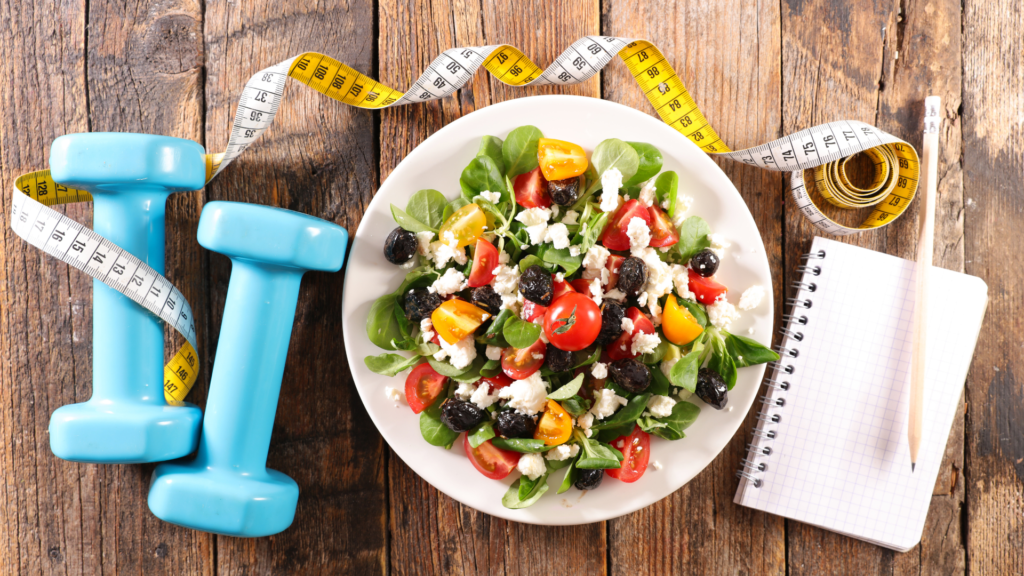Women’s Weight Loss Success: Make Your Goals Specific and Measurable
In today’s fast-paced world, busy women often struggle to prioritize their health and wellness. Achieving sustainable weight loss goals isn’t just about shedding pounds; it’s about setting specific and measurable goals that fit seamlessly into your lifestyle. With the right weight loss program and a nutrition plan tailored for weight loss, women can transform their aspirations into reality. This guide will empower you with strategies to create a weight loss plan for women that supports your goals and fits the demands of your busy life. Together, let’s embark on a journey that builds your confidence and assures long-term success in your pursuit of wellness.
Understanding Specific Goals
Defining Weight Loss Success
When embarking on a weight loss journey, it is crucial to define success. Success isn’t solely about a number on the scale. It’s about achieving a healthier lifestyle, enhancing overall well-being, and feeling more confident in your skin. Start by identifying realistic and specific goals that align with your lifestyle. For instance, rather than aiming to lose a certain number of pounds, focus on fitting into your favorite jeans or improving your stamina for daily activities.
This mindset shift can be empowering, fostering a positive relationship with your body and fitness goals. Moreover, other indicators of success, like improved energy levels, better sleep, and reduced stress, should be considered. These elements contribute to a successful and sustainable wellness plan, not just weight loss. With clear and personalized goals, you’re more likely to stay motivated and achieve lasting results.

Importance of Measurable Goals
Measurable goals are the cornerstone of any successful weight loss program. They provide a clear framework for tracking progress and maintaining motivation. Without measurable goals, it’s easy to feel lost or discouraged. Start by establishing specific metrics to gauge your progress. For example, track your daily calorie intake, the number of steps you take daily, or the frequency of your workouts. These tangible benchmarks help you see the incremental changes that add to significant improvements over time.
Furthermore, measurable goals allow you to adjust your strategies if something isn’t working, ensuring your weight loss plan remains effective and aligned with your objectives. By creating a detailed log of your activities, you can celebrate small victories that motivate you. Remember, measurable goals clarify your path to success and empower you to confidently take charge of your wellness journey.

Crafting a Personal Weight Loss Plan
Tailoring a Weight Loss Program
Creating a tailored weight loss program begins with understanding your unique needs and lifestyle. This personalization is essential for a sustainable and effective weight loss journey. Start by assessing your daily routine and identifying areas where small changes can be made—meal prepping on Sundays or integrating short workouts during lunch breaks. Consider your dietary preferences and any health conditions when selecting a nutrition plan for weight loss.
For instance, if you prefer plant-based meals, explore whole foods that provide essential nutrients while supporting your weight loss goals. Additionally, ensure that your program includes flexibility to accommodate life’s unpredictability, making it easier to stick with it long-term. Remember, a well-tailored weight loss plan is not just about losing weight; it’s about creating a balanced approach to wellness that enhances your quality of life. By crafting a plan that respects your individuality, you’re more likely to achieve lasting success.

Building a Nutrition Plan for Weight Loss
Developing a nutrition plan for weight loss that aligns with your lifestyle is crucial for long-term success. Identify foods that nourish your body and support your weight loss goals. Incorporate a variety of fruits, vegetables, lean proteins, and whole grains into your diet to ensure you receive essential nutrients. Pay attention to portion sizes and balance, key elements in maintaining a healthy weight.
Additionally, focus on creating satisfying and enjoyable meals, as this will help prevent feelings of deprivation. It’s beneficial to plan your meals and snacks, saving time and reducing the likelihood of making unhealthy food choices on the go. Remember, a successful nutrition plan is not about strict dietary restrictions but about fostering a positive relationship with food. You’re setting the stage for sustainable weight loss and overall wellness by prioritizing balanced, nourishing meals.

Strategies for Busy Women
Time Management for Weight Loss
Balancing career, family, and personal time can make weight loss seem daunting, but effective time management can streamline your efforts. Start by scheduling dedicated time for physical activity, even if it’s just 20 minutes a day. Consider integrating exercise into your daily routine, like taking the stairs instead of the elevator or walking during breaks. Meal prepping is another time-saving strategy; prepare healthy meals and snacks in advance to avoid the temptation of fast food.
Use a calendar or our Healthier You App to plan your workouts and meals, ensuring you stay organized and committed. Find pockets of time throughout your day to focus on your wellness goals, such as early morning workouts or evening relaxation routines. By prioritizing these activities, you create a balanced lifestyle that supports weight loss. Remember, consistency is key, and with thoughtful planning, you can make significant progress toward your wellness goals without feeling overwhelmed.
Simplifying Meal Prep and Planning
Simplifying meal prep and planning can significantly ease the challenge of maintaining a nutritious diet amidst a busy schedule. Start by selecting a few versatile recipes you can rotate throughout the week. Focus on meals that include lean proteins, whole grains, and plenty of vegetables. Dedicate a specific day, like Sunday, to preparing ingredients in bulk—chop vegetables, cook grains, and portion proteins.
This approach saves time and ensures you have healthy options ready when needed. Consider using slow cookers or instant pots to make meal preparation quick and hassle-free. Additionally, make use of grocery delivery services to streamline your shopping process. Keeping a well-organized pantry with essential items can also help you whip up meals in a pinch. By simplifying your meal prep, you save time and reduce stress, making it easier to adhere to your weight loss program and nutrition plan for weight loss.
Tracking Progress and Adjusting
Tools for Monitoring Success
Employing the right tools is crucial to track your weight loss success. Start with a reliable digital scale to track your weight regularly, but remember that weight is just one aspect of your wellness journey. Consider using a tape measure to record inches lost from various body parts, providing a more comprehensive view of progress. Fitness trackers or mobile apps can help monitor your physical activity, steps taken, and calories burned, offering insights into your daily activity levels. Food diary apps are excellent for logging meals and tracking nutritional intake, ensuring you stay aligned with your weight-loss nutrition plan.
Additionally, take progress photos to document visual changes in your body over time. These tools not only provide tangible evidence of your progress but also help identify areas for improvement. By consistently using these resources, you can make informed adjustments to your weight loss plan, ensuring continued success.
Adapting Your Weight Loss Plan
Adapting your weight loss plan is essential to accommodate changes in your lifestyle, preferences, and body. As you progress, it’s crucial to reassess your goals and strategies regularly. Start by reviewing your progress with the tools you’ve been using, such as scales and fitness trackers, to identify patterns and areas that need adjustment. You might find that certain exercises are no longer challenging or that your dietary preferences have shifted.
Adjust your workout routine to include new activities that keep you engaged and motivated. Similarly, update your weight-loss nutrition plan to incorporate new foods or recipes that align with your current tastes and nutritional needs. It’s important to remain flexible and open to change, as this will help prevent plateaus and keep your weight loss journey dynamic and effective. Regularly adapting your plan ensures it remains relevant and supports your overall wellness goals.
Staying Motivated on Your Journey
Celebrating Small Victories
Recognizing and celebrating small victories is vital for maintaining motivation on your weight loss journey. These achievements, whether they are losing a few pounds, sticking to your weight-loss nutrition plan, or completing a workout goal, reinforce your progress and encourage perseverance. Start by setting smaller, achievable milestones that lead up to your larger goals. Each time you reach a milestone, take a moment to reflect on your hard work and dedication.
Reward yourself in ways that support your wellness journey, such as indulging in a massage, buying a new workout outfit, or spending time on a favorite hobby. These positive reinforcements help sustain your motivation and remind you of your progress, even if the journey seems slow. Celebrating small victories boosts your confidence and fosters a positive mindset, making it easier to stay committed to your weight loss program and continue working towards your ultimate goals.
Overcoming Weight Loss Plateaus
Hitting a weight loss plateau can be frustrating, but it’s a common part of the journey. Overcoming these plateaus requires patience and strategic adjustments. Start by reassessing your current habits; sometimes, small changes can reignite progress. Evaluate your diet to ensure you’re not unintentionally consuming extra calories or falling into routine eating patterns. It might be helpful to vary your nutrition plan for weight loss by trying new foods or recipes.
Additionally, intensify your workout regimen by incorporating different types of exercises or increasing the duration and intensity of your sessions. This change can help break the monotony and challenge your body in new ways. Remember to manage stress and prioritize sleep, as both can impact weight loss. Above all, maintain a positive mindset and remind yourself that plateaus are temporary. By staying committed and making thoughtful adjustments, you’ll overcome the plateau and continue progressing on your weight loss journey.



